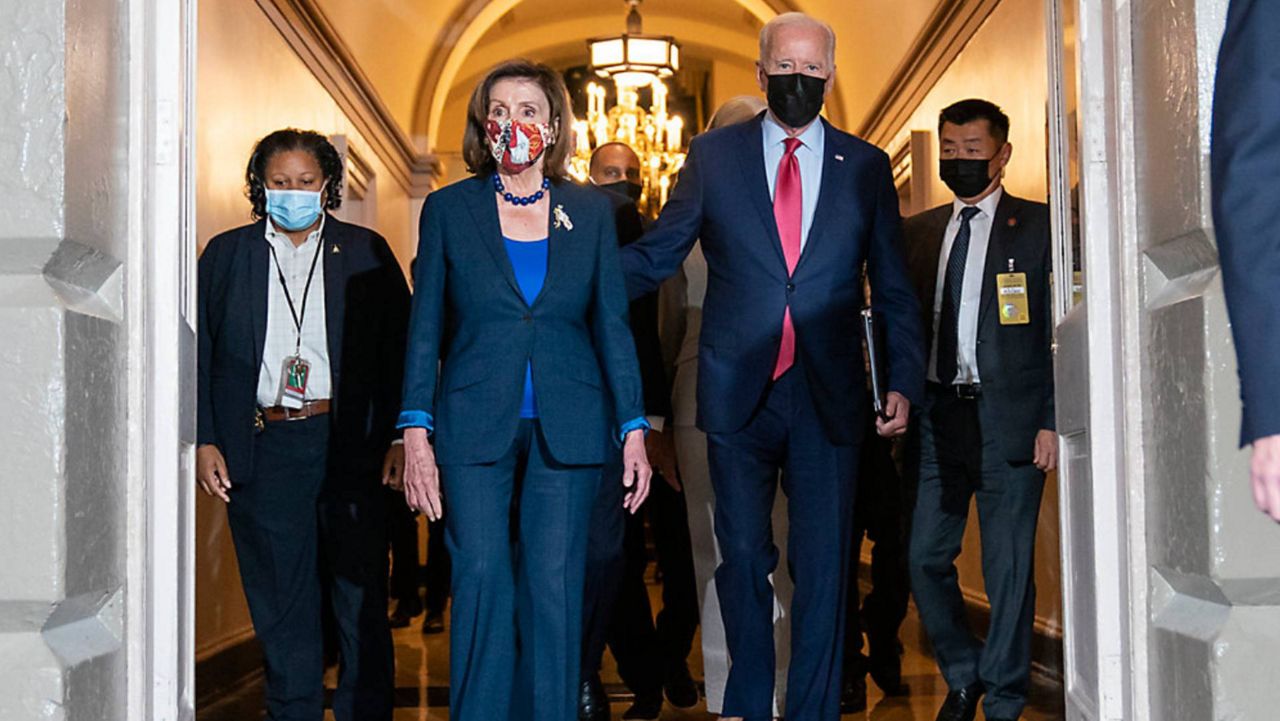TEXAS — A coalition of organizations from eight southern states, including Texas, fighting for health care coverage in areas that do not have a Medicaid expansion, got a hopeful sign Thursday when a fix to the so-called “coverage gap” remained in the latest version of President Joe Biden’s $1.85 trillion economic and environmental bill now being contentiously debated among Democrats in Congress.
Texas is one of 12 states that has limited Medicaid coverage for adults, despite public opinion polls showing support for expanding it in the state and studies that demonstrate its benefits to Texans.
A proposed bill during the Texas 87th Legislature’s regular session that would have expanded Medicaid did not pass this year. The bill, some of which had bipartisan support in the Republican-controlled legislature, died when they did not get a committee hearing before the end of the session.
In September, Southerners for Medicaid Expansion, a coalition of some 400 organizations from across the South, asked Congress to put money in the federal budget to end the so-called “coverage gap” by expanding Medicaid in those states that have not signed onto the expansion under the Affordable Care Act.
The coverage gap refers to the people who make too much money to qualify for Medicaid but have too small of an income to qualify for the Affordable Care Act’s individual marketplace, commonly known as Obamacare.
Biden is urging his party in Congress to embrace his sweeping social policy and climate plan, known as the Build Back Better framework. As of Oct. 28, the current bill would include tax credits for up to 4 million uninsured Americans in states that have not expanded Medicaid.
“While work remains, closing the Medicaid gap is the single most important step Congress could take to tackle structural racism in our health care system,” Southerners for Medicaid Expansion said in a statement. “It is no accident that 60% of the two million Americans in the coverage gap are people of color, and most live in the South.”
Debate on the White House’s proposed bill framework has lasted for weeks as senators have been divided on spending levels and how to pay for the massive bill.
If the bill passes, it could benefit millions of Texans who currently do not have any health care coverage. Texas has the highest number of uninsured residents in the country.
As of the end of September, 21% of Texas were living without health insurance of any kind. That’s down five percentage points from 26% of Texans without health insurance back in January 2021.
Experts attribute the increase in the number of Texas getting health insurance to the rebuilding of the economy and with it, more jobs coming back with employer-sponsored health insurance.
Since April, thousands of Texans took advantage also of a benefit that was part of President Joe Biden’s American Rescue Plan Act, which provided a 100% federal subsidy for COBRA premium payments for some who lost group health plan coverage due to involuntary termination of their jobs or a reduction in hours during the pandemic.
COBRA stands for the Consolidated Omnibus Budget Reconciliation Act of 1986, which allows eligible individuals to keep their group health insurance after leaving a job by paying the premium themselves. The American Rescue Plan Act signed by Biden in March provided subsidies for those premium payments from April 1 to Sept. 30 of this year.
Economic recovery continues in Texas even as the global pandemic remains a constant factor in daily life. The unemployment rate was 5.6% in September of this year, compared to 8.3% in the same month a year ago, meaning more Texans have returned to work and, for many, started receiving employer-sponsored group health insurance.
Still, Texas remains the most uninsured state in the nation, and that rate could increase as some of the benefits, such as the COBRA subsidies, end, causing many Texans to lose their coverage again.
According to a recent study by QuoteWizard by Lending Tree, which tracks insurance rates across the country, Texas’ uninsured rate was significantly higher than the U.S. rate of 12% and three percentage points higher than Florida, the second-highest uninsured state.
Getting public health insurance is more difficult in Texas than it is in many states and is a primary driver in the number of uninsured in the state, according to Nick VinZant, a senior research analyst and insurance expert at QuoteWizard.
“One of the reasons we've found that Texas always has a high uninsured rate is because Texas does not have the robust public health insurance infrastructure that a lot of other states do,” VinZant said.
Of those who have health insurance in Texas, about 13% to 15% have it through public health programs such as Medicaid. In other states, such as Rhode Island or Oregon, the percentage of insured people on public health programs is closer to 22% to 25%, VinZant said.
“When people lose their job or don't have access to that private insurance, they really have a hard time finding health insurance in Texas,” he said. “The public options just aren't there.”



